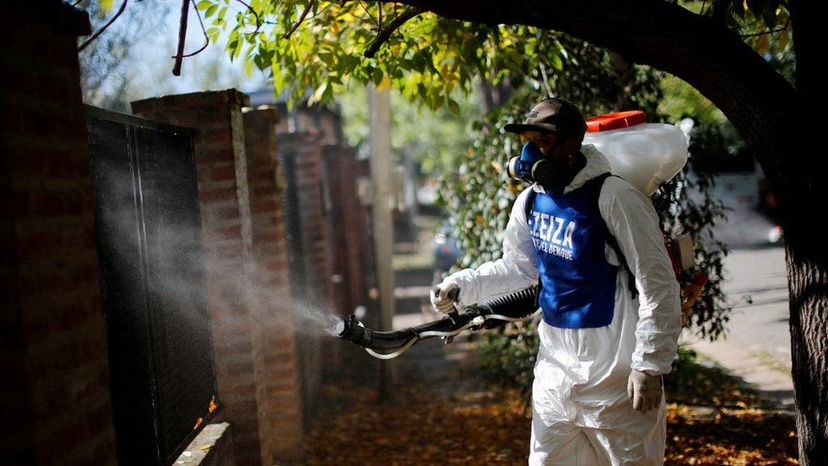Dengue Fever: Recent Outbreak and Detection Methods
Dengue fever is a mosquito-borne viral disease that is common in tropical and subtropical regions in the world. It is caused by four different types of dengue viruses and is transmitted through the bites of infected Aedes mosquitoes. Dengue fever can cause severe flu-like symptoms, including high fever, headache, joint and muscle pain, and rash. In some cases, it may lead to severe dengue fever, which could be fatal.
Recently, there has been a surge in dengue fever cases in several countries, including Argentina, Brazil and Thailand. Only in Argentina, there were more than 60 thousand infected cases of dengue fever in 2023, with over 40 deaths reported. This outbreak has been attributed to a combination of factors, including climate change, urbanization, and ineffective mosquito control measures.

Fumigation to stop the spread of dengue in the capital Buenos Aires. From: REUTERS
To control the spread of dengue fever, it is important to be able to detect the virus early. Two of the most common serological methods for diagnosing dengue fever are NS1 antigen testing and IgM/IgG antibody testing. NS1 antigen testing detects the presence of the dengue virus antigen in the patient's blood. This test is useful for early diagnosis of dengue fever, as the antigen can be detected as early as day 1 of the onset of symptoms. IgM/IgG antibody testing detects the presence of IgM/IgG antibodies to the dengue virus in the patient's blood. IgM antibody testing can also distinguish between the different types of dengue virus, which can be important for patient management and surveillance. WIZ provides you the solution for Dengue fever test.
In addition to these diagnostic tests, there are also several preventive measures that can be taken to reduce the risk of dengue fever. These include eliminating mosquito breeding sites, using mosquito nets and insect repellent, and wearing protective clothing. Mosquito control measures, such as insecticide spraying and the use of biological control agents, can also be effective in reducing the mosquito population.
In conclusion, dengue fever is a serious disease that can have severe consequences if left untreated. The recent outbreaks in several countries highlight the need for improved mosquito control measures and early detection methods. By taking proactive measures to prevent the spread of dengue fever, we can reduce the impact of this disease on public health.




